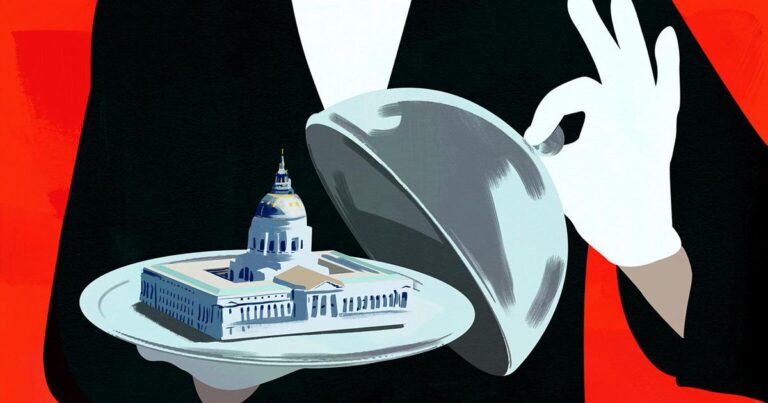Transformations in San Francisco Politics: The Role of Campaign Funding
In San Francisco, an observable shift in political dynamics has raised alarms among progressive factions. Wealthy donors, often new to local politics, are backing moderate candidates, prompting concerns about the potential redirection of the city’s storied progressive policies towards a more conservative agenda.
Perspectives from the Political Landscape
Moderate Democrats in The City tend to downplay the concerns raised by their progressive counterparts, suggesting that these apprehensions stem from frustration over recent electoral setbacks. They argue that the influx of funding from affluent backers is not unusual in San Francisco politics and reflects a long-standing trend.
“I think it’s possible that many of these things that we hold dear and that are defining features of San Francisco’s cultural and political identity could be washed away in the course of one or two electoral cycles,” stated former San Francisco District Attorney Chesa Boudin, who faced a recall vote in June 2022 after his progressive policies attracted significant controversy.
The Rise of Campaign Spending
Political spending has surged across the U.S. in recent years, as high-net-worth individuals increasingly contribute to campaigns at all levels, including federal, state, and local elections. This trend is evident in San Francisco, where key propositions, including those aimed at expanding police powers, received substantial financial backing from moderate supporters.
For instance, during the recent Proposition E campaign, which aimed to expand police powers, moderate groups significantly outspent their progressive counterparts, highlighting a shift in the dynamics of campaign financing.
Conflict of Interests and Local Dynamics
The current climate reflects deep divides over pressing issues such as housing shortages, homelessness, and public safety. Progressives assert that the recent influx of large donations signals an attempt to undermine institutions that inherently protect the city’s vulnerable populations and curtail executive authority.
Political consultant Jim Stearns noted the historical context of funding in San Francisco, stating, “Over the years, there has always been considerably more money in the downtown business side of the political fence.” He emphasized that while influential donors have always participated in politics, the emergence of billionaire patrons has intensified the competition for local candidates.
Reactions from Moderates and Their Strategies
Moderates assert that their financial support stems from widespread dissatisfaction among residents with the current political status quo. They dismiss the notion of a “billionaire conspiracy,” arguing that their victories are a direct result of effective messaging and policy proposals directed at safety and economic growth.
Steven Buss Bacio, head of GrowSF, a moderate advocacy group, emphasized, “These are regular people donating money, and they’re trying to cast it as some billionaire conspiracy.” He believes the engagement of local citizens in political fundraising is genuine and foundational.
The Influence of Big Money in Politics
Experts in campaign finance caution against oversimplifying the relationship between campaign spending and electoral success. Brian Adams, a political science professor, explained, “Money is a necessary but not sufficient condition for winning.” He indicated that while funding is essential to remain competitive, overflowing campaign expenditures can lead to diminishing returns as voters become desensitized to constant advertising.
Brendan Glavin of OpenSecrets raised concerns regarding the influx of substantial independent expenditures, advocating for heightened accountability in political messaging. “Is what people are hearing legitimate messaging, or are they being misled?” he queried, underscoring the importance of transparency in campaign financing.
Future Implications and Hope for Progressives
Despite the challenges posed by escalating campaign spending, some progressive leaders remain optimistic that traditional grassroots strategies can yield success in future elections. They cite historical examples where robust community engagement proved superior to financial backing alone.
As the political landscape continues to evolve, it remains to be seen how the ongoing funding battles will shape the future of San Francisco’s rich political culture, with progressives striving to maintain their foothold amid rising financial pressures.



